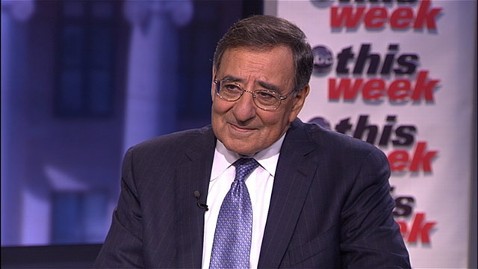Leon Panetta: A Crippling Cyber Attack Would Be 'Act of War'

(ABC News)
I sat down with Defense Secretary Leon Panetta for a "This Week" interview and we discussed the growing threat from China. Read our exchange on the cyber threat from China and check out our complete conversation in the web-only video below to find out how concerned Panetta is about the Asian power's aggression in the South China Sea.
TAPPER: So, you are headed to Asia, and you will be meeting with your Chinese counterpart in Singapore. You've said that we face the possibility of a cyber attack. This is one of the things you talked about last time with me, about how this was a very big, serious issue of concern for you. And you said it could be the equivalent of Pearl Harbor.
The Pentagon has acknowledged recently China is the biggest source of cyber attacks against this country, including stealing our military secrets. Newt Gingrich spoke about this threat on the campaign trail often. He said cyber attacks, cyber spying, are quote, "acts of war." Do you agree? Are they acts of war, and how would the United States respond?
PANETTA: Well, there's no question that if a cyber attack, you know, crippled our power grid in this country, took down our financial systems, took down our government systems, that that would constitute an act of war.
But what we're involved with here is the effort to make sure that never happens. And in order to do that, we've got to engage. You know, I think it's important for us to engage China in this effort. That's one of the issues I raised when the minister of defense came here from China. How can we better engage on this issue, to share information and to ensure that those kinds of attacks never happen, because this is an area where the technology is developing quickly and where clearly it is becoming an adjunct in terms of any country that moves against another country militarily.
This is something we've got to pay attention to. And it's not only with China. We've got to engage Russia. We've got to engage other countries in an effort to try to develop some kind of standards here that will assure us that just as we did in the nuclear area, we can take steps to prevent a mistake that could be very damaging to our security.